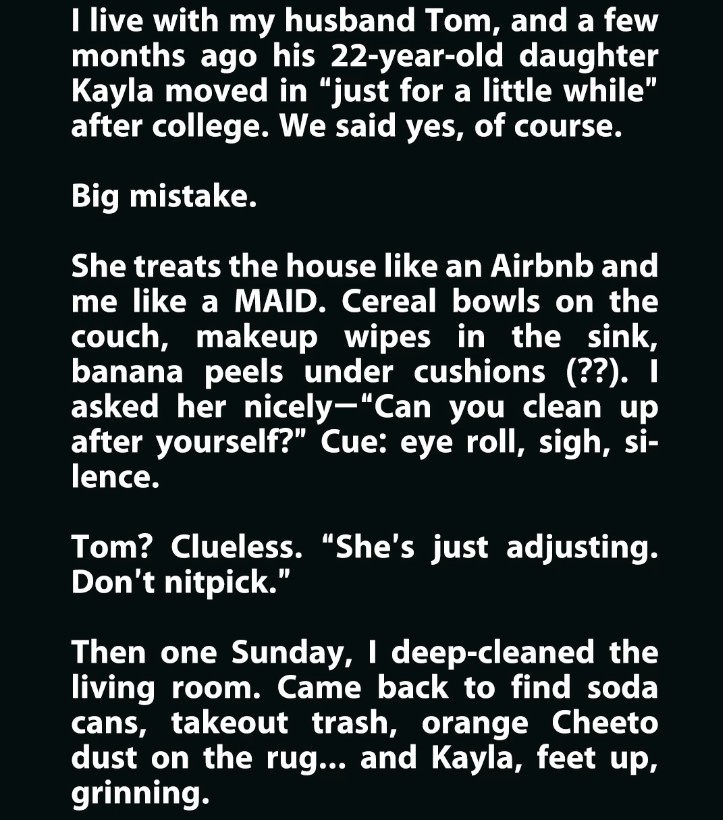For three months, Diana watched her home transform from a sanctuary into a battleground of disrespect. Her husband’s daughter, Kayla, had moved in under the guise of needing help—but what she brought was chaos. Trash piled up, dishes were left to rot, and Diana’s quiet routines were bulldozed by entitlement. Kayla treated her like a maid, not a stepmother. No gratitude. No courtesy. Just designer boots stomping through hardwood halls and a cold indifference that stung deeper than words.
Diana had tried kindness. Birthday cards. Coffee invites. Gentle questions. But Kayla met every gesture with a shrug. It wasn’t hatred—it was erasure. And that, Diana realized, was worse.
So she stopped playing the help.
One morning, Diana rose early. She didn’t make pancakes. She didn’t tidy up. Instead, she boxed every item Kayla had scattered across the house—clothes, makeup, even her designer boots—and stacked them neatly by the front door. She scrubbed the floors, not out of duty, but to reclaim her space. Then she left a note: “This home deserves respect. So do I.”

When Kayla returned, she found a spotless house—and her mess waiting outside. No yelling. No drama. Just a quiet, powerful message: kindness isn’t weakness, and every home has boundaries.


